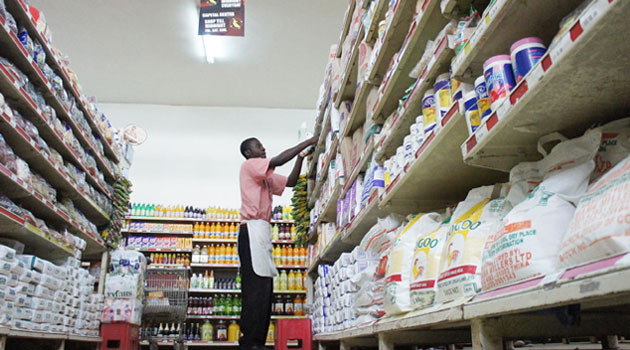Despite the advance of supermarkets, convenience stores, and other modern formats, African consumers on average continue to buy more than 70% of their food, beverages, and personal care products from the continent’s more than 2.5 million small, independent shops. In Kenya, these shops are known as dukas, and are the cornerstone of socio-economic systems across Africa.
A report by Boston Consulting Group (BCG), The Future of Traditional Retail in Africa highlights that consumers in Kenya buy 77% of their goods from more than 250,000 small stores. Kenya has several well-established hypermarket and supermarket chains. Modern sector growth has been sluggish in the past few years, with players such as Uchumi, Nakumatt and Shoprite having exited or gone bankrupt through a combination of poor management, overly rapid expansion, and inappropriate formats.
The report further states that traditional shops will account for 65% to 75% of sales in most of the region and be a catalyst for Kenya’s vision 2030. The expansion of e-commerce and payment services, moreover, might provide small retailers with a new role in digitized trade and payments.
Read: Residential Units In Ruiru, Rosslyn, Thindigua, Ruaka Record Highest Y/Y Average Returns
According to Chris Mitchell, Managing Director & Partner at BCG, “The traditional retail sector will remain at the core of Kenya’s commerce for the foreseeable future. The nation’s dynamic digital technology ecosystem and the significant penetration of mobile money are stimulating a transformation of both traditional and modern stores. Several factors make traditional retailers remarkably resilient. Small shops offer the proximity, flexibility, and convenient operating hours needed to serve their communities. They also often allow customers with limited incomes to purchase small quantities on credit. By comparison, many modern retailers in most of Africa have failed to devise a winning model that can be scaled up to address the needs of most customers. Their locations and value propositions primarily cater to upper-class consumers”.
Yet, traditional retail in Kenya faces many imposing challenges, including the expansion of modern retail, the nascent rise of e-commerce, and changes in consumer behaviour that were accelerated by the COVID-19 pandemic.
The profile of the retailers, their willingness to diversify their businesses in response to a challenging environment, the growing availability of digital solutions from technology start-ups, and supportive government policies will enable dukas to build resilient business operating models. The strategies of modern retailers, such as supermarket and convenience-store chains, and solutions provided by tech companies will also influence the future of traditional retail. In Kenya, for example, 91% of proprietors surveyed by the report in Nairobi and Mombasa are equipped with smartphones, compared with 68% of the general population in those cities.
Eagerness to modernize in response to challenges will also be critical. In Kenya, for example, the portion of retailers offering remote ordering rose from 27% in early 2019 to 39% in late 2021.
Email your news TIPS to editor@thesharpdaily.com















